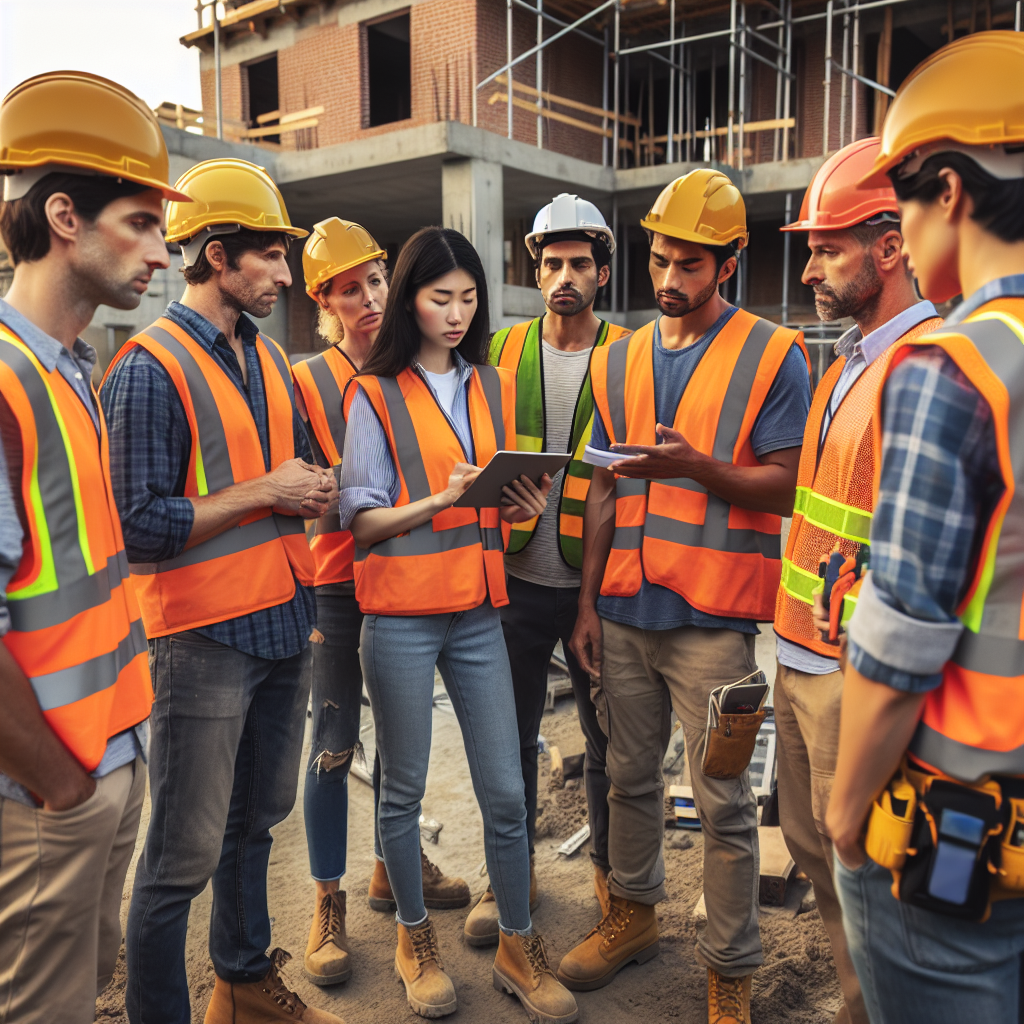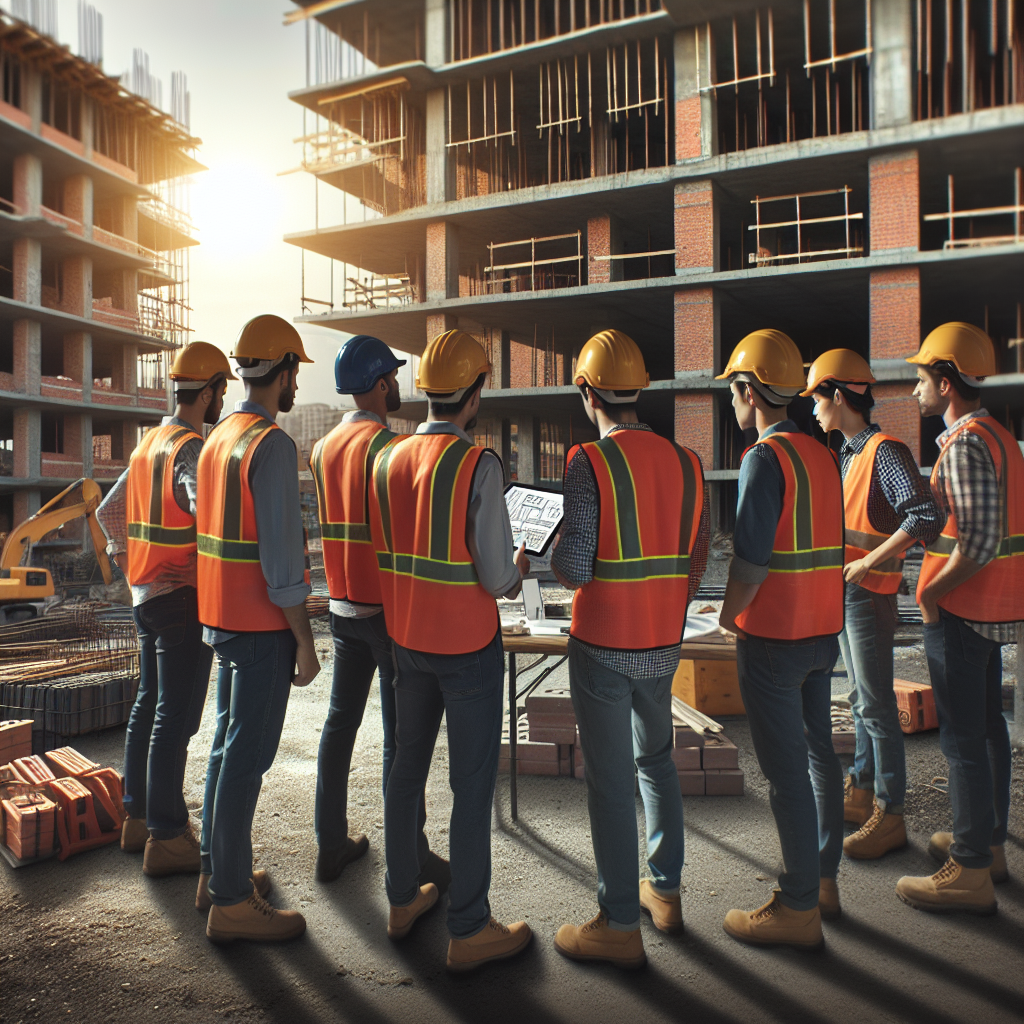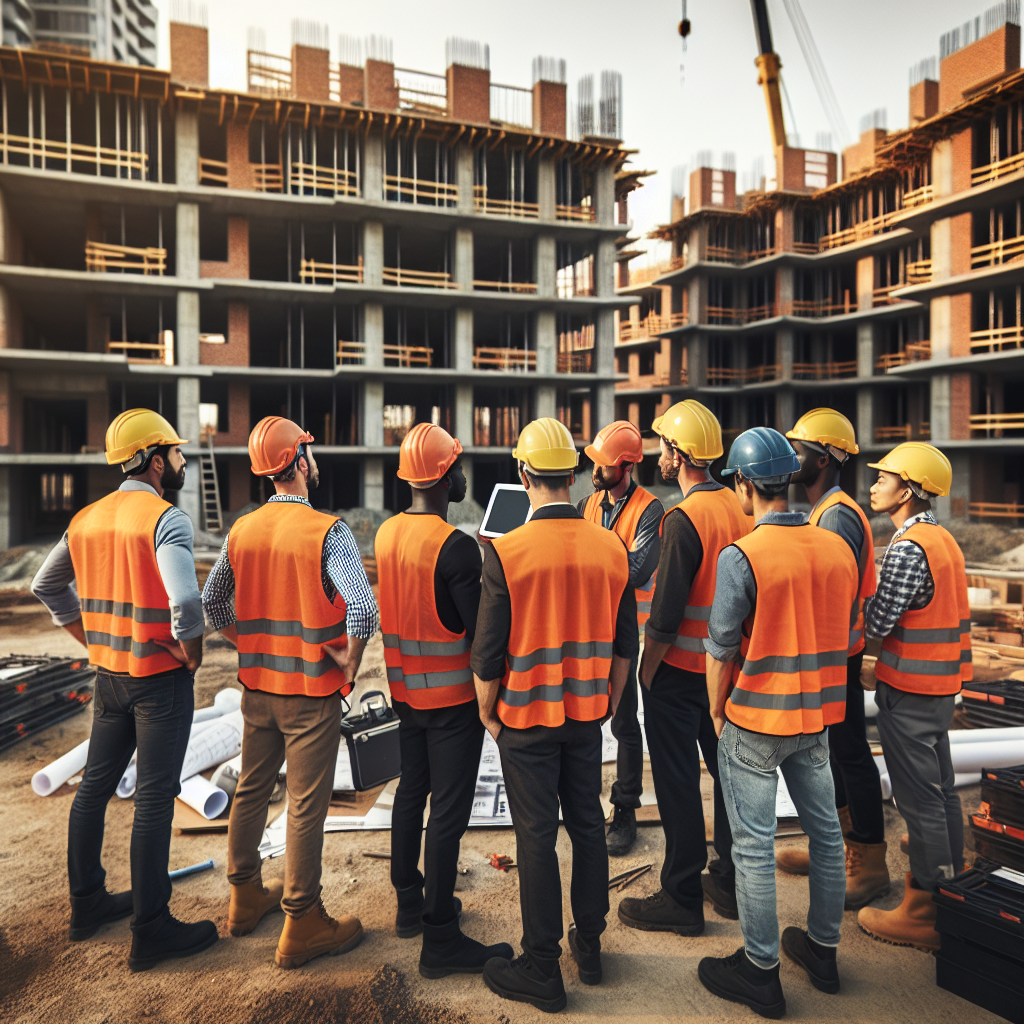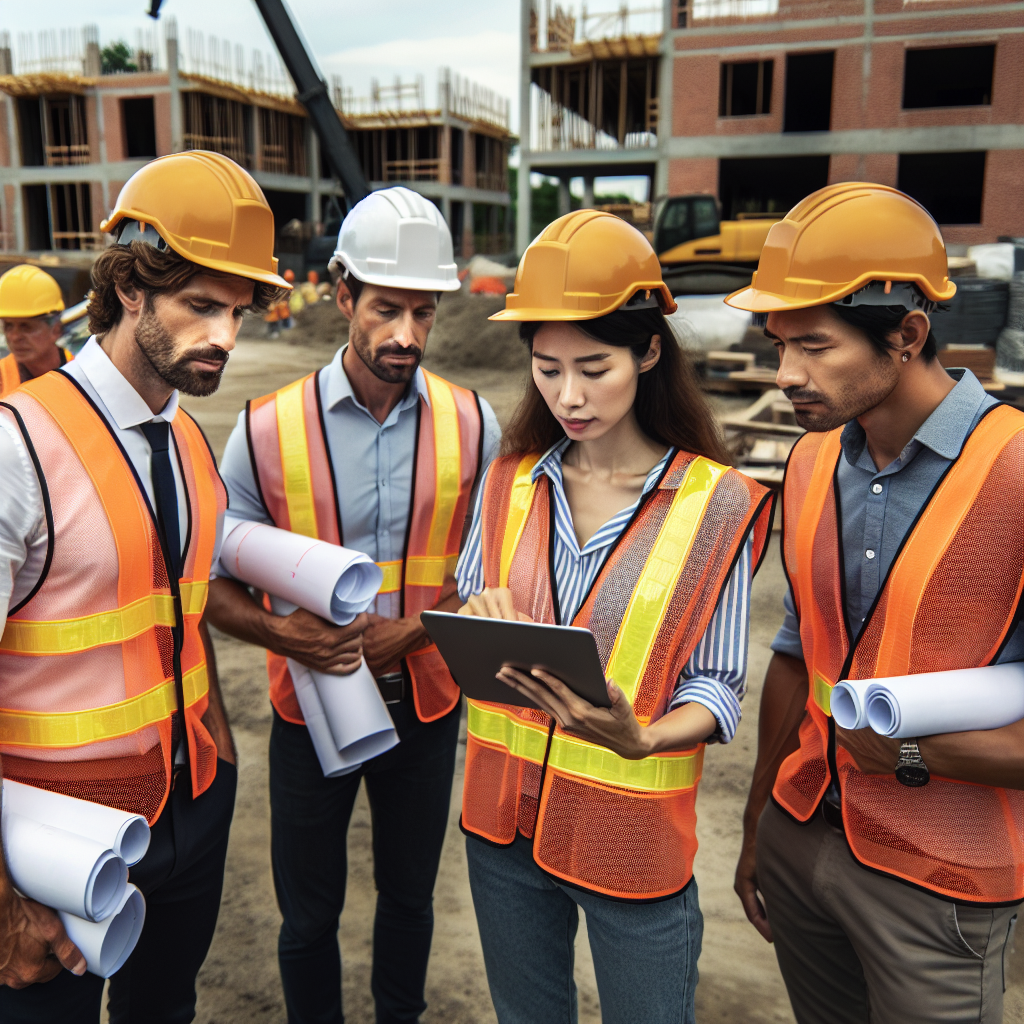The Role of AI in Enhancing Team Collaboration in Construction
In the ever-evolving construction industry, effective team collaboration is paramount for success. With multi-faceted projects requiring seamless coordination between various stakeholders, integrating AI in construction has emerged as a transformative solution. From improving communication to risk management, AI-powered tools are not just augmenting human effort; they are revolutionizing how teams collaborate. In this blog, we explore the critical role of AI in enhancing team collaboration and how platforms like Zepth facilitate these advancements.
Key Concepts and Benefits of AI in Construction
Human-AI Collaboration
The crux of successful AI implementation lies in fostering human-AI collaboration. Rather than replacing jobs, AI enhances human capabilities, leading to substantial performance improvements. Research indicates that companies prioritizing this collaboration over pure automation see significant gains in efficiency, safety, and decision-making. For instance, incorporating AI tools for construction, such as real-time data analysis and predictive algorithms, can streamline workflows and enhance overall project outcomes.
Team Collaboration and Communication
Given the fragmented nature of construction roles and stakeholder engagement, effective team collaboration is crucial. Utilizing construction project management software that integrates AI functionalities can lead to enhanced communication and more efficient risk management. A remarkable 91% of contractors agree that increased collaboration significantly reduces the risks associated with construction projects. With AI driving this collaborative approach, teams can operate more cohesively, ensuring that all members are informed and engaged.
AI-Powered Tools Enhancing Collaboration
Optimizing the Design Phase
AI-driven generative design is transforming the design phase of construction projects. Architects and engineers can input specific design goals into AI construction platforms that generate optimized design options, providing solutions that are more efficient and cost-effective. This not only accelerates the design process but also facilitates smoother communication among team members involved in planning and execution.
Risk Mitigation on Job Sites
AI and machine learning solutions significantly propel construction risk management forward by enabling project teams to monitor and prioritize risks in real-time. By rating subcontractors based on a risk score, teams can focus their efforts on addressing the most pressing issues, thus mitigating potential problems before they escalate. This proactive approach reduces uncertainties and enhances trust amongst team members.
Efficient Project Planning and Execution
AI’s predictive capabilities greatly enhance project planning and execution. For example, AI can analyze historical data to predict cost overruns and project timelines, drastically helping in project budgeting tools for construction. Additionally, advanced robotics integrated with AI can automate data capture through 3D scans, classifying progress on site and alerting management to any deviations. Such innovations enable project teams to respond swiftly to changes, thereby improving overall efficiency.
Enhancing Safety Through Technology
One of the standout advantages of AI in construction is its ability to enhance on-site safety. By leveraging computer vision technology, AI systems can monitor construction sites in real-time, identifying safety hazards like unprotected workers or machinery operating outside safe parameters. This proactive safety monitoring is not only crucial for compliance but also fosters a culture of safety among team members.
Best Practices for Integration of AI in Team Collaboration
Training and AI Literacy
For construction companies to realize the full potential of AI-driven tools, employee training on AI literacy is essential. Training programs should cover data analysis, machine learning basics, and AI ethics, ensuring that team members understand the capabilities and limitations of AI. Empowering employees with this knowledge fosters a collaborative environment where human capabilities and AI technologies can flourish together.
Fostering a Culture of Innovation
Encouraging a corporate culture that supports innovation and experimentation is fundamental. Employees should feel empowered to challenge traditional methods and propose novel solutions. Such a culture enables teams to explore various applications of AI, leading to better outcomes and improved processes.
Encouraging Feedback and Participation
Incorporating regular feedback mechanisms, such as town hall meetings and AI innovation committees, fosters an environment where input from team members enhances AI tool development. The goal is to ensure that these tools meet the real-world needs of construction professionals while promoting ongoing improvement in processes and collaboration.
Choosing the Right Digital Tools
Utilizing digital tools that integrate features such as task management, document sharing, and real-time communication is critical. Platforms like Zepth provide comprehensive solutions designed to enhance collaboration. With features like integrated AI capabilities, teams can communicate more effectively and manage projects with more transparency and efficiency.
Emerging Innovations in Construction Collaboration
Cloud-Based Collaboration Platforms
Cloud-based solutions equipped with AI functionalities are revolutionizing communication and data sharing in construction. These platforms enable real-time collaboration, allowing stakeholders, regardless of their location, to access and manage project data efficiently. Enhanced data management capabilities streamline team efforts and support informed decision-making.
Advanced Natural Language Processing
Looking forward, advancements in AI, particularly in natural language processing, will allow for more intuitive interaction with AI systems. This development will facilitate easier usage of AI tools by team members, making AI-powered platforms accessible to all involved in construction projects.
Predictive Analytics
Another notable trend lies in the use of machine learning algorithms for predictive analytics. These capabilities enable teams to anticipate project timelines and budget requirements more accurately by analyzing large datasets from various sources. The predictive nature of these tools empowers teams to plan proactively rather than reactively.
How Zepth Can Enhance Your Collaboration
Zepth’s platform truly stands out in the realm of construction management software. By integrating AI functionalities, Zepth enhances team collaboration, supports real-time communication, and streamlines data sharing, ensuring all stakeholders have access to updated information. With tools for construction document management and construction financial management tools, Zepth provides comprehensive solutions that are tailored to meet the evolving needs of the construction industry.
Moreover, Zepth can provide AI-driven insights, helping companies to anticipate risks, identify cost overruns, and optimize project timelines. By supporting the adoption of AI through phased integration and training, Zepth ensures that team members are equipped to leverage these advancements effectively. Additionally, with tools for safety monitoring and risk management, Zepth is committed to enhancing overall project success, ensuring that construction companies can deliver their projects on time and within budget.
For more details on how Zepth can support your construction management needs, visit Zepth’s website.
Integrating AI-driven solutions into construction processes not only enhances team collaboration but also leads to improved project efficiency and reduced risks. As the construction industry continues to digitalize, leveraging AI will be crucial for teams aiming for success in this competitive landscape.




